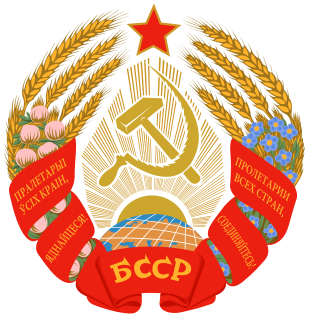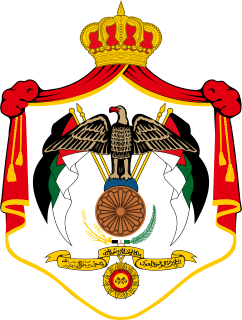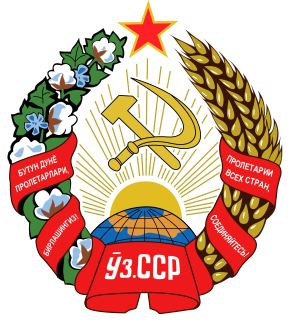 W
WThe coat of arms of the BBC was adopted in March 1927 to represent the purpose and values of the corporation. It is seldom used nowadays except for ceremonial purposes.
 W
WThe national emblem of Belarus features a ribbon in the colors of the national flag, a map of Belarus, wheatears and a red star. It is sometimes referred to as the coat of arms of Belarus, although in heraldic terms this is inaccurate as the emblem does not respect the rules of conventional heraldry. The emblem is an allusion to one that was used by the Byelorussian SSR, designed by Ivan Dubasov in 1950, with the biggest change being a replacement of the Communist hammer and sickle with an outline map of Belarus. The Belarusian name is Dziaržaŭny herb Respubliki Biełaruś, and the name in Russian is Gosudarstvennyĭ gerb Respubliki Belarusʹ.
 W
WThe Byelorussian SSR emblem was used as the coat of arms of the Soviet Socialist Republic until the fall of the Soviet Union. The coat of arms is based on the coat of arms of the Soviet Union.
 W
WOn August 25, 1934, the Executive Council issued Directive No. 558 declaring the Coat of Arms of the Hashemite Kingdom of Jordan, as the official emblem of the country and outlining its specific design layout. On February 21, 1982, the Council of Ministers issued the official Notification No. 6, which gave written specifications and explanations of the official emblem of the country. The following description is:
 W
WThe coat of arms of the state of New York was formally adopted in 1778, and appears as a component of the state's flag and seal.
 W
WThe state seal of New York features the state arms surrounded by the words "The Great Seal of the State of New York". A banner below shows the New York State motto Excelsior, Latin for "Ever Upward", and the secondary motto E Pluribus Unum, Latin for "Out of Many, One"—adopted in 2020.
 W
WThe State Emblem of the Soviet Union was adopted in 1923 and was used until the dissolution of the USSR in 1991. Although it technically is an emblem rather than a coat of arms, since it does not follow traditional heraldic rules, in Russian it is called герб, the word used for a traditional coat of arms.
 W
WThe emblem of the Uzbek Soviet Socialist Republic was adopted on February 14, 1937 by the government of the Uzbek Soviet Socialist Republic. The emblem is based on the emblem of the Soviet Union. It shows symbols of agriculture and heavy industry (hammer). The rising sun over a map of the Soviet Central Asia symbolizes the future of this region, while the five pointed red star stands for the "socialist revolution on all five continents".